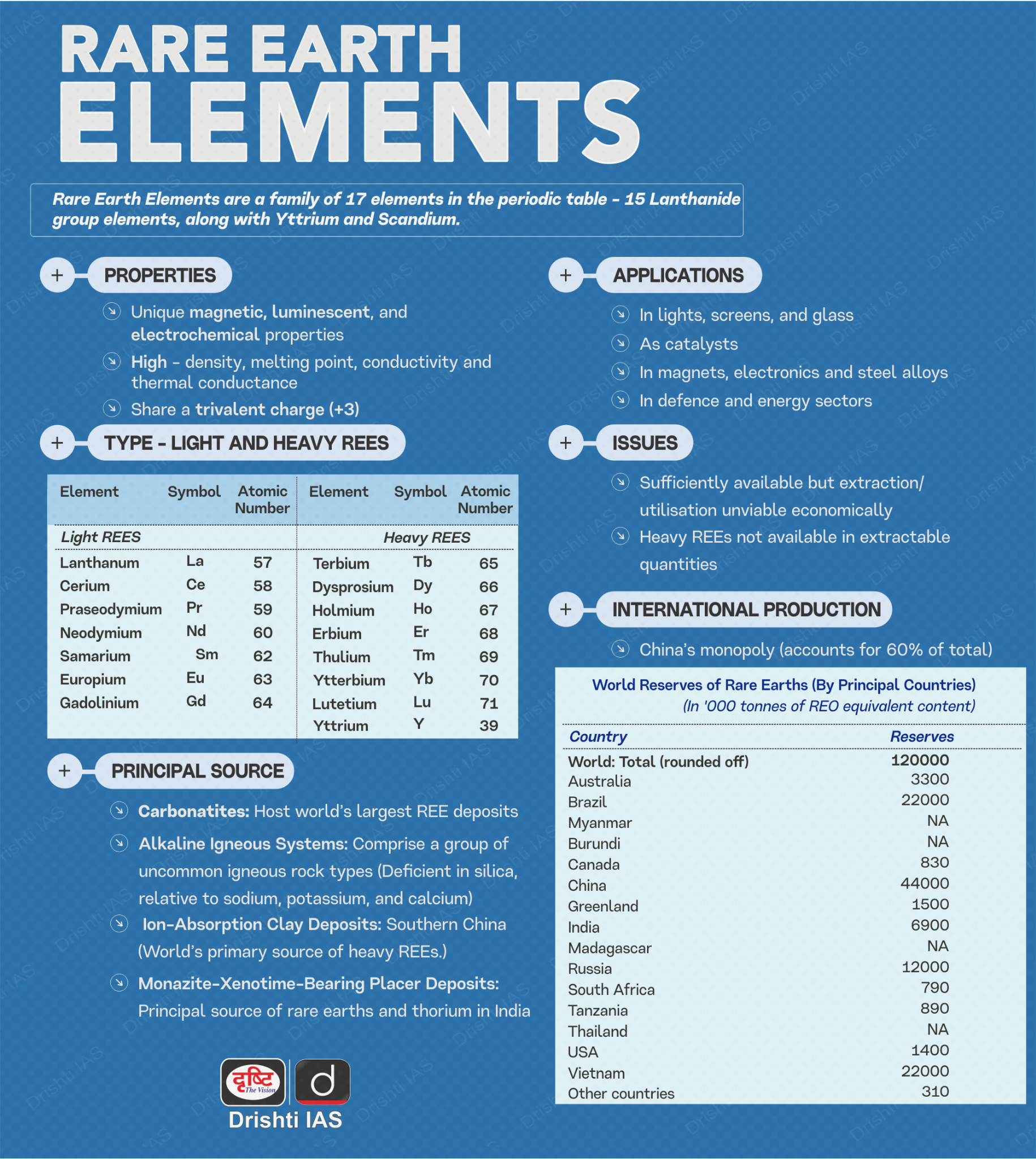Bihar Switch to Hindi
The Central Government Cancels the Auction of 13 Crucial Mineral Blocks
Why in News?
Recently, the Centre has cancelled auction for 13 of 20 blocks on offer in the first round of critical mineral bids following poor response from the bidders.
Key Points
- These 13 crucial mineral blocks which received poor response hold glauconite, nickel, chromium and platinum group elements (PGE), potash, etc. They are spread across Bihar, Jharkhand, Odisha, Tamil Nadu, Uttar Pradesh, and Jammu and Kashmir (J&K).
- The PGEs—platinum, palladium, rhodium, ruthenium, iridium, and osmium—are metals that have similar physical and chemical properties and tend to occur together in nature.
- Earlier, in June 2023, the government released a list of 30 minerals considered critical for the country. These include antimony, beryllium, bismuth, cobalt, copper, gallium, germanium, graphite, hafnium, indium, lithium, molybdenum, niobium, nickel, platinum group elements (PGE), phosphorous, and potash.
- Rare Earth Elements (REE) like rhenium, silicon, strontium, tantalum, tellurium, tin, titanium, tungsten, vanadium, zirconium, selenium and cadmium were also present in this list.
Critical Minerals
- Critical minerals are those minerals that are essential for economic development and national security
- The lack of availability of these minerals or concentration of extraction or processing in a few geographical locations may lead to supply chain vulnerabilities and even disruption of supplies.
- Declaration of Critical Minerals:
- It is a dynamic process, and it can evolve over time as new technologies, market dynamics, and geopolitical considerations emerge.
- Different countries may have their own unique lists of critical minerals based on their specific circumstances and priorities.
- Expert Committe under Ministry of Mines has identified a set of 30 critical minerals for India.








%20MPPCS%202025%20Desktop%20E.jpg)
%20MPPCS%202025%20Mobile%20E%20(1).jpg)










.png)
.png)











 PCS Parikshan
PCS Parikshan


